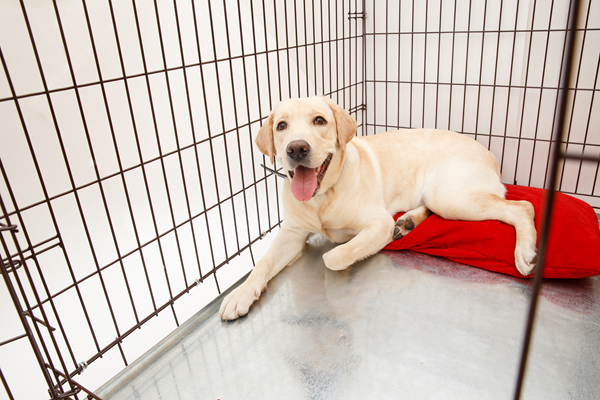
Many people are thinking about vacations at this time of year. Around the holiday season, it’s nice to think about going away for an extended period with family or friends. However, if you have a pet, vacations can get a little more complicated, because you must ensure your pet is taken care of.
There are a few options to consider if you want to take a humans-only vacation. Of course, you can leave your pet with a friend or family member if they are willing, or you can ask them to visit your house, to feed and exercise your pet daily. You can also hire a pet sitter to perform these jobs.
Another option you may want to think about is boarding, particularly if you have a dog. Many boarding facilities are associated with veterinary hospitals and are staffed with trained professionals to care for your pet. And these days, there are many options that make boarding more like a doggy vacation.
Boarding your dog allows you to a stress-free vacation, knowing your dog is happy and well cared-for while you’re away. Here are some of the key questions you may have when considering boarding for your dog.
Will my dog be happy in a boarding kennel?
Each dog is different, but many dogs enjoy staying in kennels and even look forward to visiting. To ensure a happy time for your dog, visit the kennels before you commit, to see if the facility is a fit for you and your pet. Some kennels recommend a series of short boarding visits, lasting a few hours each, to allow your dog to get used to being away from you. Like daycare for humans, sometimes the initial separation is difficult, but it gets better with each time away.
How will I know if my dog will relax in the kennel?
Despite the fears of their owners, most dogs settle into boarding life very quickly. One or two short stays at a kennel will help your pet adjust to being without you and get used to the boarding facility and staff.
- When you pick up your pet, evaluate their general condition. This will give you an indication of the standard of care your pet received.
- Ask the kennel staff about your pet’s behavior and appetite. Pets that are unaccustomed to boarding will have a decreased appetite or drink less water during their stay. This is normal, but frequent, short visits will help reduce your pet’s anxieties.
- Some kennels provide photos, videos, or even livestreamed video of your pet while they are boarding, allowing you to see in real time how your pet is adjusting.
How can I find suitable boarding kennels?
Most kennels have websites and advertisements online that you can peruse. The best way to find a good kennel is through recommendations from friends, neighbors, local online dog groups, or your veterinary clinic.
Are there any health requirements for boarding my dog?
Your dog should be in good health when they go to board. They should also be up-to-date on their vaccinations, as well as heartworm and flea preventives. Vaccination for rabies, canine distemper, Bordetella (“kennel cough”), and canine influenza are often required. Most boarding kennels require written proof of vaccination from a licensed veterinarian.
What else should I remember when I board my dog?
- Discuss any special medical problems or dietary requirements with the kennel staff before boarding your pet.
- Leave written authorization for emergency veterinary care with the boarding kennel, along with the contact information for your veterinarian.
- Call the facility before your visit and find out what is else might be required, to prevent last minute delays.
- Let your veterinarian know when you will be away, where your pet is staying, and anyone who has authorization to make medical decisions for your pet if you will be unreachable.
There are number of great dog boarding checklists online that will help you find a safe boarding facility and also help you prepare your dog for the time away. With a bit of homework and consideration, you and your pet can have a fun and stress-free vacation this holiday season – and any time of the year.
